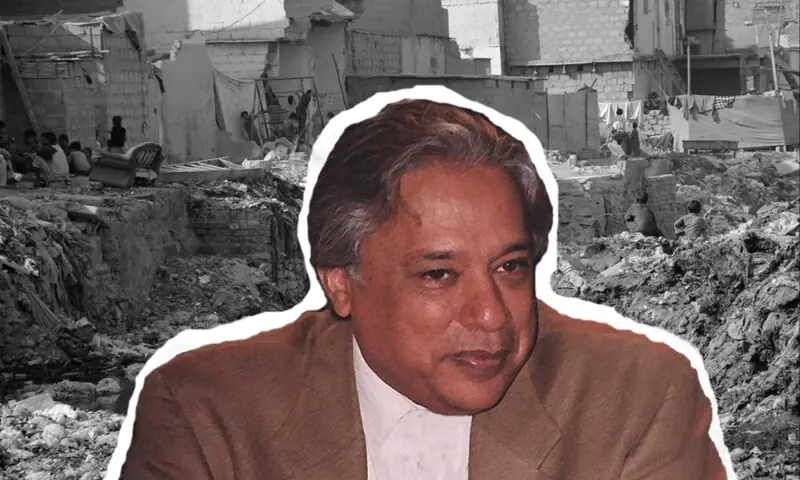Planning and development expert Arif Hasan has spent more than five decades working with poor communities across Pakistan and development practitioners and institutes around the world.
Over the last 50-plus years, I have sat through numerous presentations on government, NGO, masters and PhD students’ development projects, in various countries, both in what is now known as the global North and global South.
In addition, international financial institutions (IFIs), such as the World Bank and the Asian Development Bank, have also sought my assistance. I have also been a member of various United Nations committees on physical and social development, and a consultant to them. As the chief adviser and the chairperson of the Orangi Pilot Project (OPP) and the Urban Resource Centre (URC), I have challenged the structure of thinking of many such projects and documented my concerns regularly.
The most important thing I have learned in the process is that most of these projects have a very strong anti-poor bias and are primarily concerned with brick and mortar aspects of problems.
ANTI-POOR BIAS
As far as academia is concerned, almost all teachers and supervisors bring their class prejudices with them, and the literature search that students have to undertake strengthens these prejudices.
The poor are portrayed as helpless and incapable of taking decisions regarding their own lives. The students are asked to observe and pass judgements on their observations. The poor are almost never asked their own definition of poverty. Judgements are passed in surveys on the basis of very small numbers. And once these numbers are cited, they become the “truth” for other students and consultants to follow.
Planning and development expert Arif Hasan has spent more than five decades working with poor communities across Pakistan and development practitioners and institutes around the world. He reflects on the major lessons he has learnt from that experience and his personal observations on what is wrong with Pakistan’s development paradigm…
In addition, studies by IFIs have an interest in portraying conditions to be much worse than they really are, so as to increase their loan packages for the project or policy under consideration. In addition, much of the loans Pakistan takes are for paying off previous loans, something that is seldom taken into consideration by the authors of the plans.
DOUBLE STANDARDS
The anti-poor bias expresses itself in other ways as well. Building standards developed for poor and rich settlements vary considerably. The poor settlements have much lower standards, the contractor is badly supervised, and the element of corruption is much higher in percentage terms. Much of the roads, sewage trunks and water pipes constructed for them collapse in a short period of time and, in the absence of well-planned drainage, low-income settlements are completely flooded.
It is not of much satisfaction that middle-income settlements today suffer the same fate as well.
Continue Reading on Dawn
This preview shows approximately 15% of the article. Read the full story on the publisher's website to support quality journalism.
